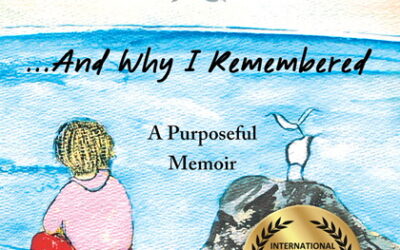I have been walking through the quiet, bare woods lately, noticing the only green around so far in my corner of western Massachusetts: the mosses, which grow with such determination on seemingly inhospitable rocks, and with luxurious abandon on the more nourishing ground of fallen trees and stumps.

The bright green of the moss reminds me of two important principles of memoir writing:
1) No matter how barren the substrate of your life seems, you can always use it as a springboard for beauty.
When people in my workshops tell me that they’re not sure they have anything worthwhile to write about, I always shake my head and move right on to the prompt. And nine times out of ten, that doubting person will look up from writing with a wondering smile, amazed at the memories that welled up as soon as they were called upon.
We humans are storytelling creatures—even at our most quiescent, when we’re asleep, we’re busy telling ourselves stories through dreams. Every single day of your life is packed with layers of narrative, as Virginia Woolf showed us so brilliantly in her day-in-the-life novel Mrs. Dalloway.
For those of us who want to write memoir, the problem becomes how to discern what particular thread we want to pursue in the vast and complex tapestry of our lives. We all have multiple potential memoirs in us, ready to be unfolded on to the page.
We purposeful memoirists must ask ourselves: what story is so full of life that it will stop at nothing to reach up towards the light? What story is demanding to be told now, and for what reason?
2) Violence and loss are harrowing, but in time become fertile ground for new life.

The day after a giant tree has come crashing down to the ground in a storm, I’ll stand by it reverently and grieve the loss. But once that tree has weathered a few seasons on the ground, it becomes a rich source of nourishment for the grateful life all around it.
In the same way, the sad or harsh passages in our lives can nourish our creativity, once time has passed and they begin to sink into the rich landscape of our memories.
It’s not easy to revisit the difficult times in our lives by writing. But just like deep talk therapy, it can be incredibly rewarding.
Unlike with therapy, however, with purposeful memoir it’s not all about you. Yes, you are writing your story, but you are doing it with the aim of sharing our life experiences as nourishment for others.
When the pain of revisiting old wounds becomes intense, remind yourself that your story, written down and shared through purposeful memoir, will help others who are on similar paths.
Ask yourself as you write, what do I wish my younger self had known, as she was going through tough times? What hard-earned wisdom can I share now that will be of benefit to the younger folks coming along behind me on the trail of life?

April is a Fire month, a time to feel life’s passion, the surging creativity that sends the sap up into the treetops, nourishing new leaves on old branches. It’s time to tap into the joyous riot of springtime and let your own creativity unfurl as well.
I’ll be offering two writing workshops in April:
- April 7, 1 – 4 p.m. in Great Barrington MA, a purposeful memoir workshop for women, “Fueling Your Creative Fires.” Find out more here.
- April 14, 3 – 5 p.m. in Dalton MA, a purposeful memoir workshop for all, “Navigating Climate Change in Uncertain Times.” Find out more here.

Namaste: I greet the Divine in you.



0 Comments